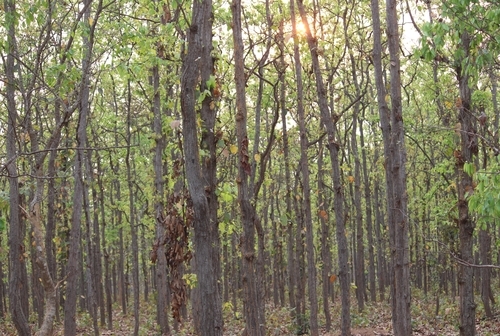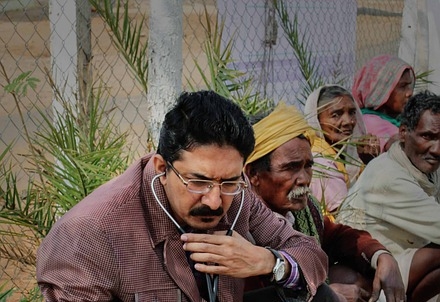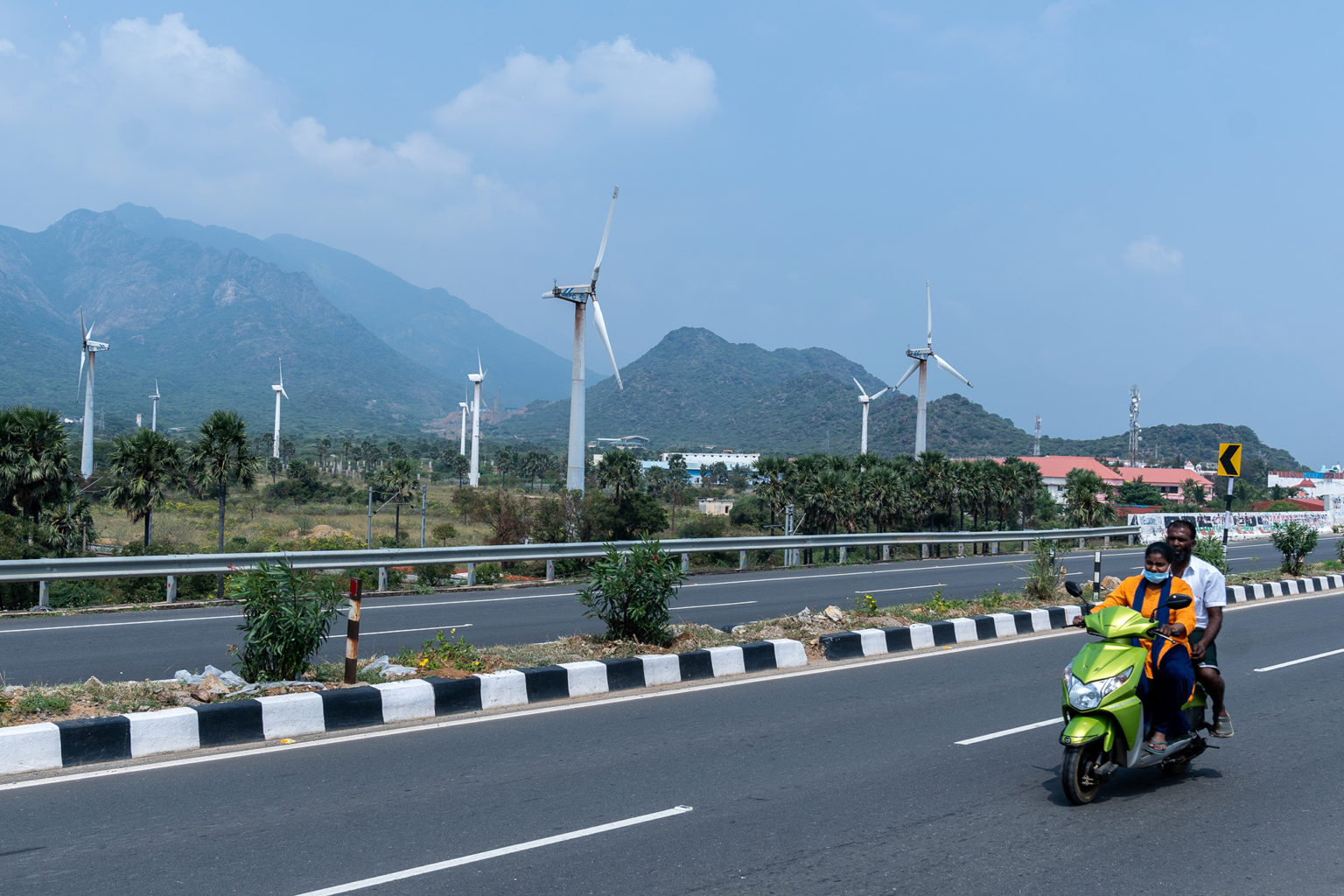Nandrolli is a small village in the Keradi Panchayat, a remote community in the Western Ghats in Karnataka. There are about 75 to 80 families and approximately 450 people in Nandrolli. The village is primarily agrarian, disconnected from the influences of advances in technology, lacking even in basic resources and infrastructure. Children have to walk several kilometers to access schooling and health facilities. But, alcoholism was widespread, sadly; so were the associated problems. Alcohol was available easily at most stores and even at doorsteps from vendors on bicycles. Very few people appeared to see alcohol as the source of problems; mostly, even they did not speak-up.
And then, children stepped in.
Among other issues, the children of Keradi identified alcoholism as one of the most important problems they had to deal with in their Panchayat. Keradi is home to one of the model and successful Makkala Panchayats (Children's Councils), facilitated by the children's rights organisation, The Concerned for Working Children (CWC). The CWC is a non-governmental institution, one of the first in India to address the issue of child labour and children's rights. It has been working since 1980 with local governments, the members of the community and working children themselves to implement viable, comprehensive and appropriate solutions to child labor problems.
The CWC has been working in the rural areas of Karnataka through the Toofan Panchayats Programme, which is a comprehensive programme of community development aimed at creating an environment where children are not involved in any form of work that is detrimental to their development, and where all the children's rights are recognised and realised. The programme works to empower all the stakeholders in the community by creating partnerships and encouraging participation. CWC has facilitated the formation of Bhima Sangha and Makkala Panchayats in all the Toofan Panchayats, including Keradi.

![]() Makkala Panchayat at work. Children
getting informed and empowered to represent themselves
Makkala Panchayat at work. Children
getting informed and empowered to represent themselves
While Bhima Sangha is a union of, by and for working children with a statewide membership of about 13,000, the Makkala Panchayats are children's councils comprising of representatives elected by all children in the Panchayat. The uniqueness of the Makkala Panchayats is its democratic and proportional representation system. There is a representative for each interest group: one each for working children, school going children, children with disabilities and so on. Both Bhima Sangha and the Makkala Panchayats are playing proactive roles as change agents in the community. Members of Makkala Panchayats and Bhima Sangha have conducted research, made interventions on the basis of the information and have lobbied officials at various levels for developments in their communities. The children have collectively struggled to get the various institutions and individuals to recognize and honour their rights, and to consult children in matters that concern them. Their voices have reached regional, national and international policy discussions.
The Keradi Makkala Panchayat, in its monthly meetings, pointed out several times that there were too many arrack shops in the village and this was the source of several problems. It fell on deaf ears. Why wouldn't the Gram Panchayat members ignore the pleas? Some of the shops where liquor was sold belonged to the Gram Panchayat members. They were benefiting financially from the liquor sales. Someone one had to take the power and/or money away from them, break the nexus of politics and money through tact or force. The children did. They chose education, empowerment and tactful political maneuvering to accomplish this.
During the Makkala Gram Sabha 2001, in which more than a thousand children of Keradi Panchayat took part, the Makkala Panchayat again raised the issue of alcoholism. The children were able to identify alcoholism as not only an individual or family problem, but also as a community problem, affecting the entire village and its people. Prior to the Children's Gram Sabha they had conducted studies of drunkenness and ensuing problems. Based on their findings they analysed why alcoholism was a major issue of concern for them, the adults and their communities. They said that alcoholism was the cause of a lot of disharmony and violence at home, loss of income, 'We are not able to study at home, We do not get money for tuition fees, books and stationery', in some houses, the children said they do not even get sufficient food, 'We are teased by other children and teachers who say your father is an alcoholic'. In addition, the children were also able to identify several other ill effects of alcoholism, like health problems, injuries and death. One child stated, "There is unnecessary expenditure on medicines and doctors on account of alcoholism, families get into huge debts, girls do not get good bridegrooms due to the alcoholism of family members..."
The children were hopeful that their identification and description of the problems would enable them to use political space to influence decision-making processes. Unfortunately, although they presented the findings at the Gram Sabha, neither were the adult Panchayat members moved nor could the children push the issue further to transform their agenda into action. Nonetheless, the tenacious members of the Makkala Panchayat raised the issue relentlessly. Once again it was brushed aside, 'What is your problem? Some people drink, we cannot stop it. We cannot close down the shops because they have licenses from the government. Moreover, the law does not prohibit anybody from stocking up to 10 packets of liquor," was the dismissive response. Adults were in denial. They asked the children to produce information about how many people drink and how much money was being spent. The children were taken aback! None of this was readily available information. The adults quickly closed the issue with profound advice to children, "But, you should not drink'!!
From their previous experience the children knew that most members of the Gram Panchayat were not supportive of their agenda. So, they decided to keep this information to themselves to be used appropriately as an effective political manuavering tool. They approached a Taluk Panchayat member, Mr. Nagappa Kotari, who was very sympathetic to their cause. They presented the information to him and a Coordinator of CWC. The Children invited the Executive Director of CWC to Independence Day celebrations conducted on 15th August. During this programme the children presented all the information collected and the approach they took. The Taluk Panchayat members, the headmaster, teachers, other invitees and the entire village were shocked by the information presented.
The revenue loss for the village was mind-boggling. The gravity of the issue struck them forcefully. The entire gathering also felt ashamed that the children had taken the lead; they, the adults, had not recognised this to be an issue of concern and none of them, including those in senior positions, had taken any action. There was an unanimous public demand that the concerned authorities take the matter seriously. As a first step, the sale of alcohol through all unlicensed means was to be prohibited. It was decided that the Panchayat will issue ban notices immediately. And, it worked! Many of the unlicensed vendors were shut down. But, closing the licensed shops was another matter, politically difficult and sensitive since most of the owners of the licensed shops were from the upper-caste (Shettys). The Panchayat President diplomatically evaded the matter stating that a memorandum had to be submitted in order to close the licensed shops. The matter was deferred and licensed shops remain open. But, the fight goes on.
Mr. Nagappa, the sympathetic member of the Taluk Panchayat, is leading a people's movement in the Panchayat against alcoholism. He feels a strongly worded memorandum from the Makkala Panchayat may influence the Taluk and District authorities to pass the necessary orders to close all the liquor shops in the village. Such an appeal coming from the Children's Panchayat may work since there is no political agenda or bias to the demand. He is organising a rally to campaign against alcoholism. He hopes that the entire Panchayat will be 'Alcohol-Free' soon.
The households then will be able to keep more of their income and spend it on activities that further the family and community interests. It helps them to improve the quality of their lives. Child labour is a complex issue, deeply rooted in socio, economic and cultural disparities. What the children in Keradi have achieved takes Keradi closer to becoming a child-labour-free Panchayat. Equally important is that with this development the Panchayat has become even more child centered and child friendly. It makes local governments accountable to children.
303/2, L.B. Shastri Nagar
Vimanapura Post, Bangalore 560 017
Karnataka, INDIA
Tel: 0091-80-5234611
Fax: 0091-80-5234258
E-mail: cwc@pobox.com
Website: http://www.workingchild.org
Fourteen-year-old Sukumar, Vice President of the Keradi Children's Panchayat, represents the feelings of the children when he says, "Until now, hardly anyone had bothered to ask us what we thought or felt. This is the first time we had such an opportunity. We can solve some of our problems. For the others, the adults will have to be responsible. We will make them responsible".























